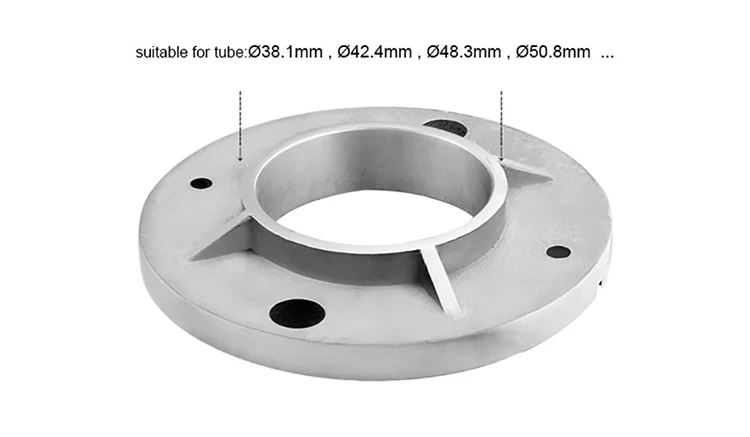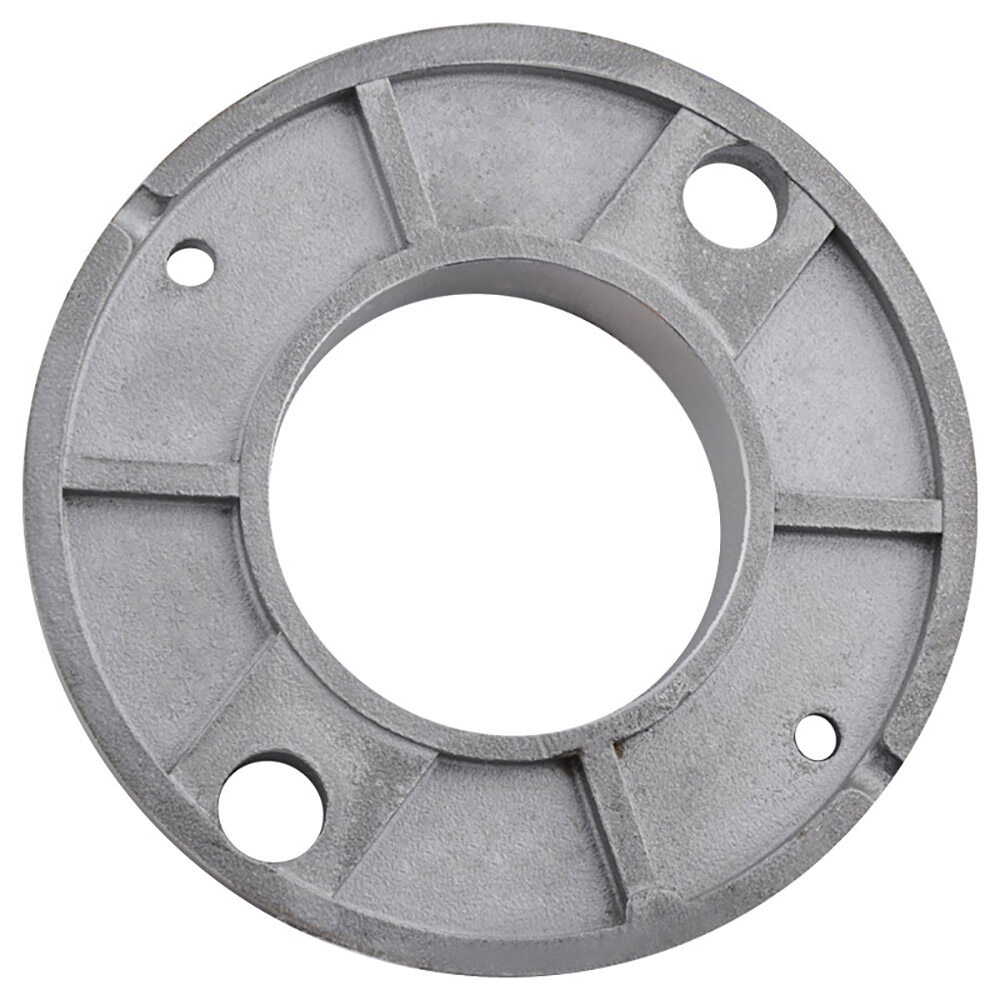Erro de formato de e-mail
emailCannotEmpty
emailDoesExist
pwdLetterLimtTip
inconsistentPwd
pwdLetterLimtTip
inconsistentPwd

Notícias

How Far Should a Handrail be from the Wall? Exploring the Importance of Handrail Post Base Plate
Handrails are an essential safety feature in any building, providing support and stability for individuals navigating stairs or ramps. However, the proper installation of handrails involves considering various factors, including the distance between the handrail and the wall. In this blog post, we will delve into the significance of handrail post base plates and discuss the optimal distance between handrails and walls.
Importance of Handrail Post Base Plates
Handrail post base plates are crucial components that provide stability and strength to the handrail system. These plates are typically made of durable materials such as steel or aluminum and are attached to the floor or wall to secure the handrail posts. By distributing the weight and force exerted on the handrail evenly, base plates prevent the handrail from becoming loose or unstable.
Proper Distance between Handrails and Walls
The distance between handrails and walls is an important consideration to ensure the safety and comfort of individuals using the handrail. The International Building Code (IBC) provides guidelines for handrail installation, including the recommended distance between the handrail and the wall. According to the IBC, the minimum distance between the handrail and the wall should be 1.5 inches (3.8 cm) to allow for easy gripping and prevent fingers from getting trapped.
However, it is essential to note that the specific distance may vary depending on local building codes and regulations. Therefore, it is crucial to consult the relevant authorities or professionals to ensure compliance with the specific requirements in your area.
Factors Affecting the Distance
Several factors can influence the distance between handrails and walls. Firstly, the type of handrail material plays a role. For instance, if the handrail is made of a thicker material, such as wood or metal, a slightly larger distance from the wall may be necessary to accommodate a comfortable grip.
Additionally, the intended users of the handrail should be considered. If the handrail is primarily designed for individuals with disabilities or mobility issues, a wider distance from the wall may be required to allow for the use of assistive devices such as canes or walkers.
Installation Process
To ensure the proper installation of handrails and the correct distance from the wall, it is crucial to follow a systematic process. Firstly, the handrail post base plates should be securely attached to the floor or wall using appropriate fasteners. The base plates should be level and flush with the surface to provide maximum stability.
Next, the handrail posts should be attached to the base plates, ensuring they are plumb and securely fastened. Finally, the handrail itself should be installed, ensuring it is at the appropriate height and securely attached to the handrail posts.
Conclusion
In conclusion, the distance between handrails and walls is a critical factor in ensuring the safety and comfort of individuals using the handrail. The use of handrail post base plates is essential in providing stability and strength to the handrail system. By following the guidelines set by the IBC and considering factors such as handrail material and intended users, the optimal distance can be determined. Proper installation techniques, including securely attaching base plates and handrail posts, are crucial for a reliable and safe handrail system.

